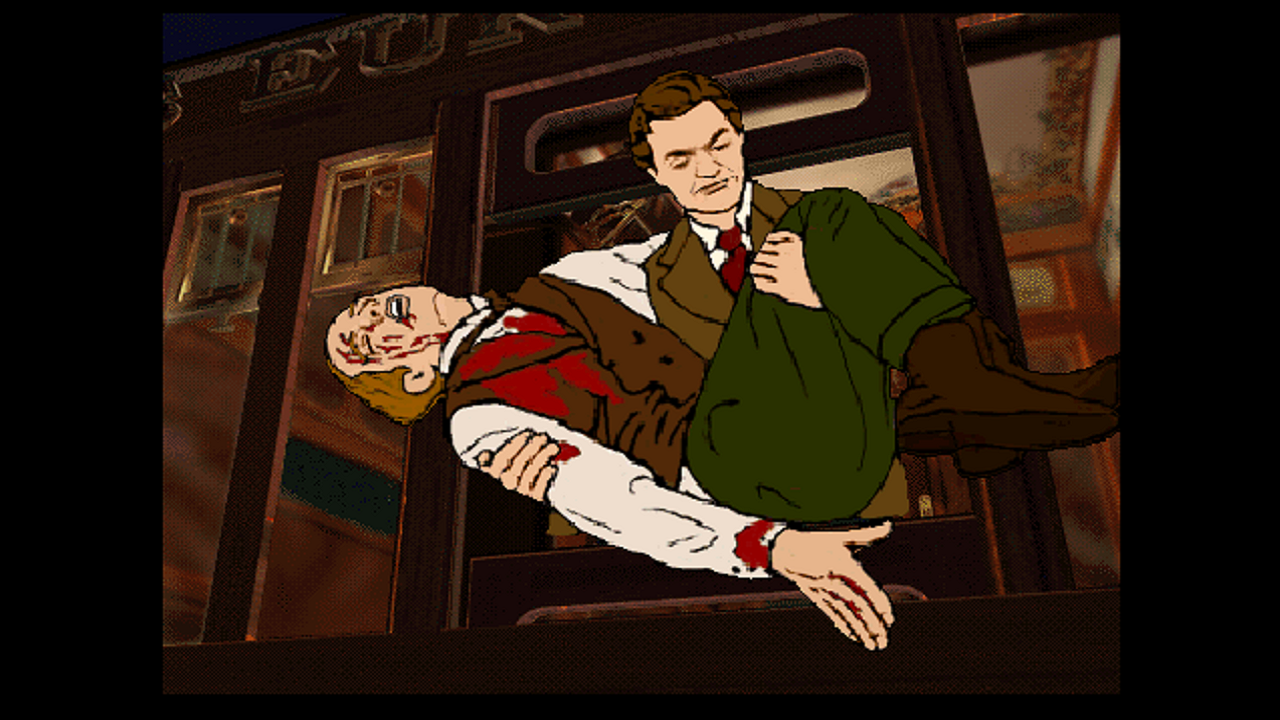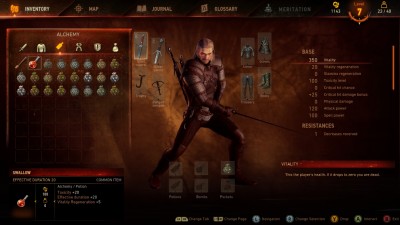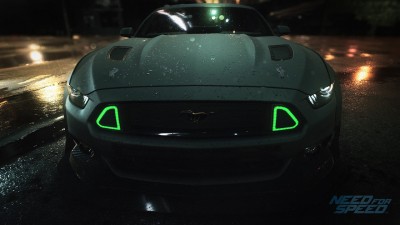The mid to late 90’s saw a rise in home PC gaming and an increased interest in adventure point-and-click style games made famous by such titles as Sam and Max, Grimm Fandango, Monkey Island, and the King’s Quest franchise.
Two of the largest game developers at the time, LucasArts Games and Sierra Entertainment, competed for dominance in what many consider to be the golden era for the point-and-click genre. In a time when everyone was either a Sierra or LucasArts fan - but rarely both - a small indie developer called Smoking Car Productions, based out of San Francisco, went on to develop only one game over a five year period: The Last Express.
I grew up with the King’s Quest series, and on occasion I even dabbled a bit into the LucasArts library with the fabled Monkey Island series. I had also given The Last Express a try, but I was too young at the time of its release to appreciate why it was so revered by critics as a cultural artifact of gaming history. I’ve aged since my first experience with the game, and once I grew accustomed to the older control scheme, I realized that The Last Express hasn’t aged at all. In fact, it’s held up well compared to other games of the era, like a fine wine which only gets better with age.
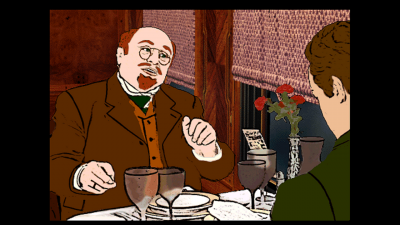 This is due in part to the Rotoscoping technique that was used to animate all the characters in an Art Nouveau style, which was popular in Europe during the lead up to the war. Rotoscoping is a animation technique in which artists layer a matte over live action footage to trace over the image, and one which The Last Express’ lead designer Jordan Mechner previously used in the classic Prince of Persia, which he created. The method of Rotoscoping helps to create detailed animations and character design, and it’s a technique that Smoking Car Productions used to fill the entirety of The Last Express with live actors filmed against a blue screen and then animated, over a 22-day shoot resulting in over 40,000 frames in total to given to animators.
This is due in part to the Rotoscoping technique that was used to animate all the characters in an Art Nouveau style, which was popular in Europe during the lead up to the war. Rotoscoping is a animation technique in which artists layer a matte over live action footage to trace over the image, and one which The Last Express’ lead designer Jordan Mechner previously used in the classic Prince of Persia, which he created. The method of Rotoscoping helps to create detailed animations and character design, and it’s a technique that Smoking Car Productions used to fill the entirety of The Last Express with live actors filmed against a blue screen and then animated, over a 22-day shoot resulting in over 40,000 frames in total to given to animators.
Aside from the innovative animation technique however, The Last Express is most notable due to just how damn good it is. In The Last Express you take on the role of the enigmatic Dr. Robert Cath in 1914 Europe, during the lead up to World War I. Cath’s involvement with the death of a British police officer has him on the run in Paris as he avoids authorities. While in hiding Cath is contacted by Tyler Whitney, an old acquaintance from Cuba, to join him on a journey east to Constantinople on the famed Orient Express.
The game opens with Cath Illegally boarding the train, only to be thrust into the muddle of a murderous political conspiracy. The onset of the war looms in the background as tensions run throughout the passengers of the train - each representing the differing political forces of European culture at the time. The result is a real pot-boiler of a whodunnit that would make the late, great Agatha Christie proud.
What makes The Last Express so compelling is that I found myself immediately questioning Cath’s motives and legitimacy as “the good guy” in the story. One of the first acts you’ll make in the game is to toss Whitney’s body overboard and assume his identity. It’s how normal Cath acts, as he slides right into the role of Whiney, that should raise eyebrows. He’s practically nonchalant about the act. From here on out you’ll have to maneuver your way through a cast of suspicious characters in efforts to locate the murderer before you one of them frames you for the crimes committed on the train.
What is even more interesting about the story is that the events take place in real time, and in turn you are on the clock to figure out what actions you should or should not take. You’ll find that it is rather easy to miss events and dialogue due to you being in the wrong place at the wrong time. Your inaction could even lead to your capture if you fail to work your way out of a compromising situation in time. In the event of your capture the game will rewind the clock to moments - if not minutes - before the critical decision, creating puzzles of time.
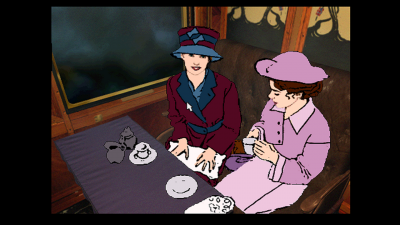 You’ll become familiar with the train as most of your time is spend navigating the long hallway that runs up and down it’s many cars. Except you’ll never find yourself bored with the environments as there is always something going on. Characters are always moving about in a believable fashion, and the train is alive with activity. While there are in-game cutscenes, most of the the narrative unfolds from a first person perspective that pulls you into the environments, creating an immersive experience that almost makes you feel as if you are Cath onboard a moving train. The animation style might remind you that you’re playing a game, but the unprecedented level of freedom afforded to the player allows you to lose yourself in The Last Express‘ world.
You’ll become familiar with the train as most of your time is spend navigating the long hallway that runs up and down it’s many cars. Except you’ll never find yourself bored with the environments as there is always something going on. Characters are always moving about in a believable fashion, and the train is alive with activity. While there are in-game cutscenes, most of the the narrative unfolds from a first person perspective that pulls you into the environments, creating an immersive experience that almost makes you feel as if you are Cath onboard a moving train. The animation style might remind you that you’re playing a game, but the unprecedented level of freedom afforded to the player allows you to lose yourself in The Last Express‘ world.
The large cast of characters are fully voice acted, and in multiple languages to reflect their actual nationalities. Even as the game approaches it’s 20th birthday does the voice acting stands out as some of the best work from the 90’s, if not in gaming history. Sure there has been major strides made quality of voice acting in recent history, but many will remember that wasn’t always the case. Many older games from would often have laughable dialogue and voice acting, everyone remembers games like Castlevania and Shenmue. It is a shame that the script from Jordan Mechner and Tomi Pierce has largely been overlooked by fans and critics alike as they created an engaging visual homage to a Christie novel.
The only aspect of The Last Express that does feels dated is the 90’s style point-and-click control scheme, which has you using your mouse to click arrows on the sides of the screen. This control method has largely become antiquated as modern first-person adventure games employ a more free flowing camera and 3D environment. If The Last Express had been made today I feel it would fit in well with games like Gone Home and Dear Esther.
However, most of the actual gameplay is your standard 90’s point-and-click affair, except it is in its execution that differs it from many of it’s peers. Many will remember the old “click around until something happens” tactics that other adventure games were notorious for having. The story is carried out in such a way that if you are paying attention to conversations you’ll easily be able to pick up your next course of action, but there are no objectives in a traditional sense. Eavesdropping on a couple in the diner car could lead you to breaking into their cabin in search of journals or even gold. Part of the joy of the way the story unfolds is the fact that Cath knows almost as little as you do about the cast of characters and his role in their charade.
While Cath is the main character, it would appear that there is an independent third person narrator watching the events unfold with , and recording them in her diary. This character appears to be a nod to famed crime novelist Agatha Christie, for which The Last Express seems to be an homage to her novel Murder on the Orient Express. Dubbed the Queen of Crime, Christie is renowned for her detective crime novels featuring the classic archetype characters Hercule Poirot and Miss Marple. Many of you may have read her classic novel And Then There Were None, which often finds itself on many English students study guides.
Much like Christie’s work, The Last Express is a crime noir story featuring classically archetype characters narrative beats famous to the genre. Cath is certainly not a detective and he is most assuredly the perpetrator of one crime or another. Noir stories rarely have a happy ending, and the good doctor will have to sift through a host of guilty parties to ultimately end up in a “lose-lose” situation.
However, the story of The Last Express is the story of lost potential as it is a revered game that few people have actually played outside of critical circles. This is further punctuated by the dramatic decline of adventure games from their height in the mid to late 90’s to that of niche gaming. When Smoking Car first pitched their ambitious vision for The Last Express it started a bidding war between publishers with the winner, Broderbund, falling into untimely financial troubles mere months before the game’s release date. The collapse of the publisher lead to The Last Express being released with little to no marketing behind it. It’s a massive shame, because The Last Express is something rather unique amongst the genre - taking place in real-time, and featuring a graphical style which is almost timeless. One can only speculate what the developer might have achieved, had it been able to go on to bigger things.
Furthermore, The Last Express’ development was a bit troubled. The cost of making the game reached a staggering five million dollars, a sum which might not seem much today in the age of game budgets which run into hundreds of million, but at the time - and for an adventure game - it was huge. The Last Express’ unique art style and need for real actors to populate each and ever scene saw production costs spiral. The script is said to be over 800 pages long, and it took Smoking Car over five years to develop the multiple narrative paths the player could take. The legacy of The Last Express is noted as be one of the first big games to fail at the start of the adventure genre crash. It stands as a near-perfect case study for rising production costs and lower consumer interest. LucasArts and Sierra even abandoned the genre they cultivated in 1999, as they struggled to keep up with a shift in consumer interest.
But despite being released on the cusp of the great adventure game collapse, The Last Express is actually one of the most playable and interesting games released - not just of the time, or even of the genre - but ever.Its artstyle has afforded the game a timeless quality, while its experimentation with realtime gameplay has yet to be copied in the genre. The Last Express feels just as pioneering now, 16 years on, as it did at the time of its release.
With the modern crowd-funded revival of the point-and-click adventure genre bringing light to old games, it’s the perfect time to take a look back on some games you may have missed the first time around. GoG and Steam have made once hard to find games trivial to locate, and at a good price for their value. If you are a fan of modern games like The Tesla Effect, The Blackwell Legacy, Gemini Rue, and Sherlock Holmes: Crime and Punishments I would encourage you to take the trip back to the early days of the first person genre and the end of the point-and-click dominance. Moreover, The Last Express is amazing artifact for game design students on how to construct a large game in a small confined space.
Now is the perfect time to find yourself a copy as the game has been remastered for iOS, GoG, and Steam. With it’s wonderfully hand drawn animated characters and deeply intriguing narrative, Smoking Car’s The Last Express is something that I would recommend to fans of crime stories and adventure games.
These days, you can still play The Last Express. The original PC version is available via GOG.com and Steam, while DotEmu published a mobile and tablet version for iOS back in 2012. It may not have earned the audience it deserved at the time, but 16 years on The Last Express is appreciated by many for its pioneering ideas and unique style. Jordan Mechner set out to create a brand new sort of adventure game, and the result was something so ahead of its time that only now is it being fully appreciated. The Last Express is unique among the genre - pioneering, adventurous in both artstyle and design, and utterly compelling from beginning to end.
Simply put, The Last Express is a masterpiece.
